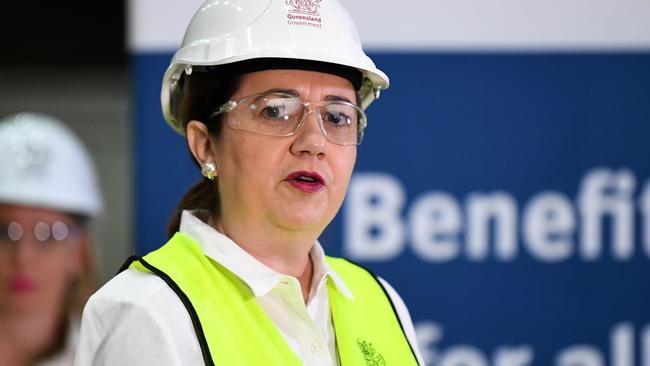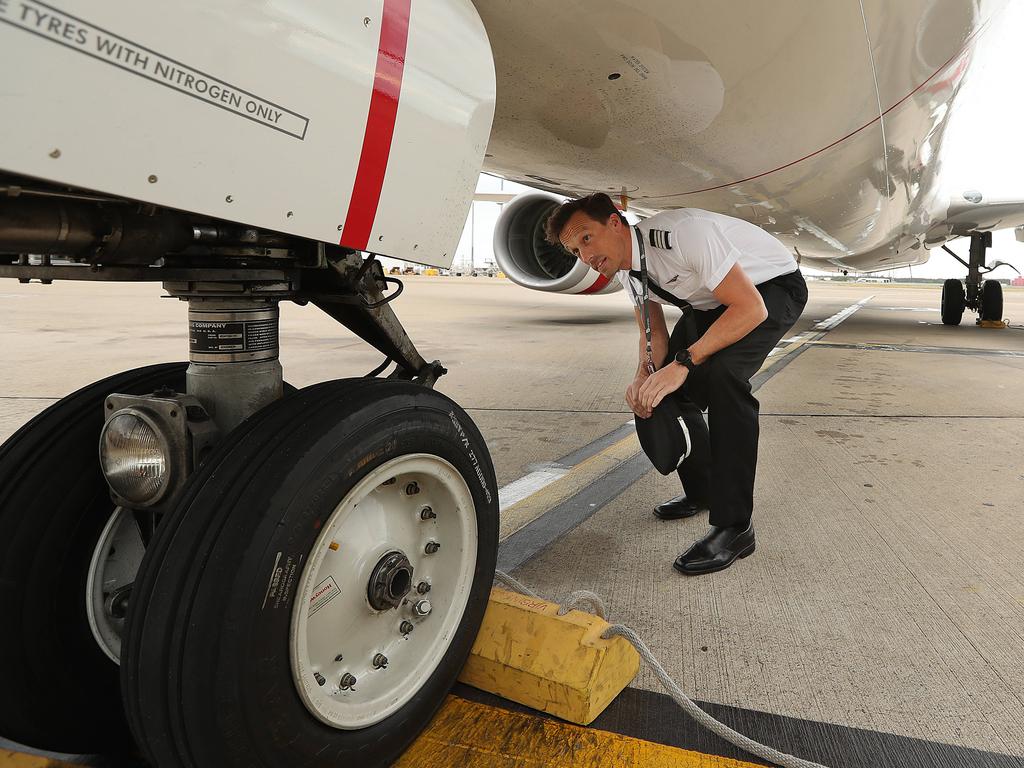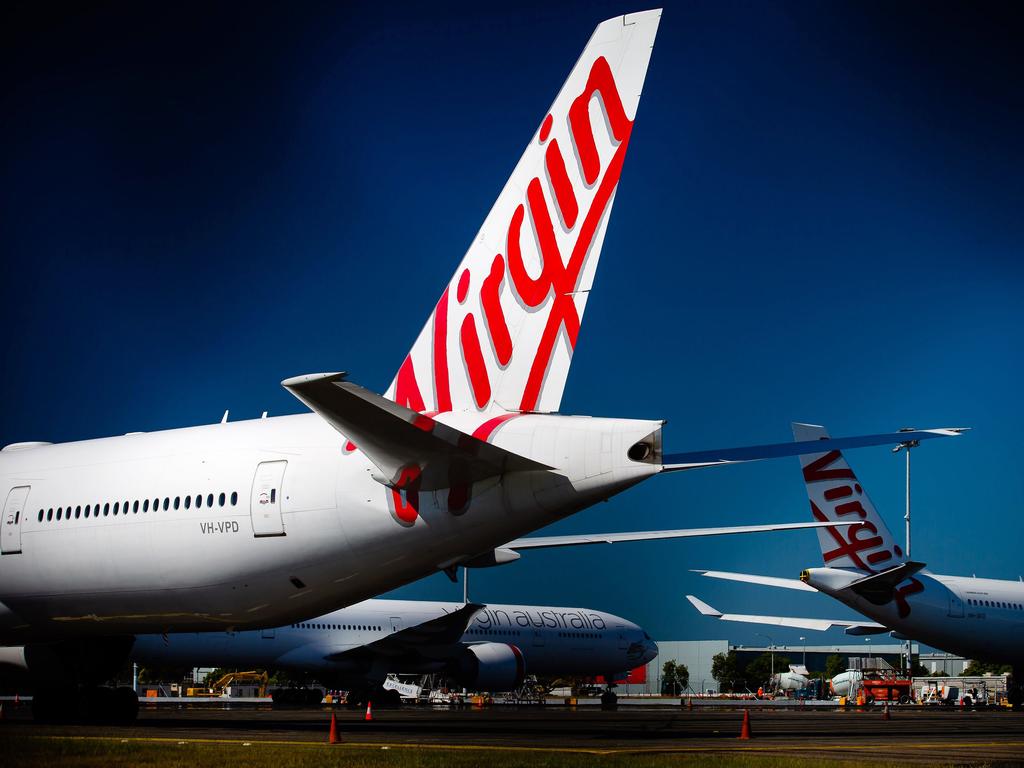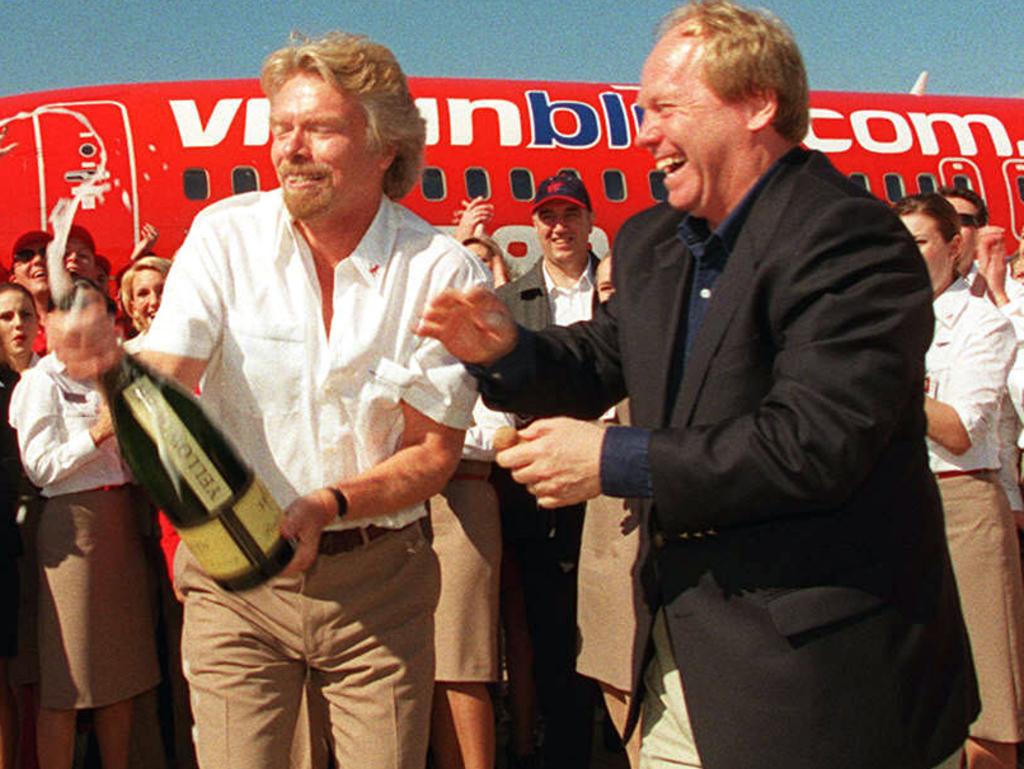Coronavirus: Annastacia Palaszczuk’s political play on Virgin ground
Annastacia Palaszczuk has made a bold move to use the proposed bid for a stake in Virgin to win over regional Queensland.

Premier Annastacia Palaszczuk has rebooted her government’s re-election strategy with a bold move to use the proposed bid for a stake in Virgin Australia to win over regional Queensland.
State Treasurer Cameron Dick brushed aside criticism of his plan to bid for a stake in Virgin, saying it would be irresponsible of the government not to “have a crack” to save thousands of jobs and protect the state’s tourism industry.
The government is moving to join a larger consortium of possible investors in the debt-plagued airline, using some or all of the $200m it put on the table to support Virgin before it went into voluntary administration last month with $7bn in debts.
Virgin’s troubles have provided a chance for the Labor government to boost its electoral chances in regional Queensland ahead of the October 31 election.
Home Affairs Minister Peter Dutton attacked the plan, calling it a “dangerous” pre-election stunt designed to make the government look good.
“Don’t forget the Premier, every credit card they have is maxed out,” Mr Dutton said.
“And yet they are saying they want to spend billions, borrow more … to put into an airline during one of the most significant downturns in the world’s history.’’
Mr Dick hit back on Twitter, “Look mate, just stick to cruise ships’’, a reference to Mr Dutton’s department’s role in the Ruby Princess corona cluster.
Mr Dick insisted any Queensland bid would “strike a hard bargain”, but said the government might not end up investing in the airline if its global investment arm, the Queensland Investment Corporation, advised against it.
The government announced this week it had told the QIC to provide advice on acquiring a stake in Virgin on the proviso that the airline kept its headquarters in Brisbane.
Mr Dick said the investment “could take the form of a direct equity stake, a loan, a guarantee or other financial incentives.”
He said it was important for the future of Queensland jobs that Virgin remained a part of the tourism industry in Australia.
“Whether you live in Cairns, Townsville, Rockhampton, Mackay, all the way down the east coast, the tourism industry, the business sector, industrial workers, all of them benefit from a vibrant, two- national-airline policy,” he said.
The move has given some spark to the government’s pre-election appeal to regional Queensland, where voters are anxious to see a rapid recovery of key industries such as tourism to boost employment. It follows sustained criticism of the government’s perceived focus on infrastructure spending and economic development in the southeast corner of the state.
With an election looming on October 31, Labor is facing a tough battle to hold several seats in north and central Queensland.
Ms Palaszczuk said the proposed bid for Virgin was aimed at protecting jobs reliant on the state’s $13bn tourism industry, one of the first economic victims of the COVID-19 pandemic.
“Today it is absolutely vital that we keep jobs in tourism, that we can back an airline that’s based here in Queensland and we back the workers right across regional Queensland as well,” she said.
Four serious indicative bids for Virgin are expected to be lodged with the airline’s administrators on Friday. The government is not expected to be making an indicative bid itself, opting to have discussions with the shortlisted parties from next week. Final bids are expected by June, with the winning bid expected to be announced by the end of next month.
The government’s move drew a lukewarm reaction in business and investment circles and provoked savage ridicule from its political opponents.
State Opposition Leader Deb Frecklington said the government should scrap the bid and instead establish a “$200m tourism-marketing fighting fund”.
“The private sector will invest in Virgin but the private sector will not invest in the unprecedented marketing blitz that Queensland needs,” Ms Frecklington said.
“What we urgently need from the state government is an all-out marketing war to get Australian tourists to take their next holiday in Queensland.”
Mining magnate Clive Palmer described the government’s move as “nothing more than political grandstanding”.
However, Flight Centre’s Graham Turner backed the plan, saying Australia needed two effective airlines to service domestic tourism and business.
Mr Turner said that if Virgin did disappear, the subsequent lack of competition would push prices up, airlines would be tougher to deal with, and airport charges would probably increase.







To join the conversation, please log in. Don't have an account? Register
Join the conversation, you are commenting as Logout